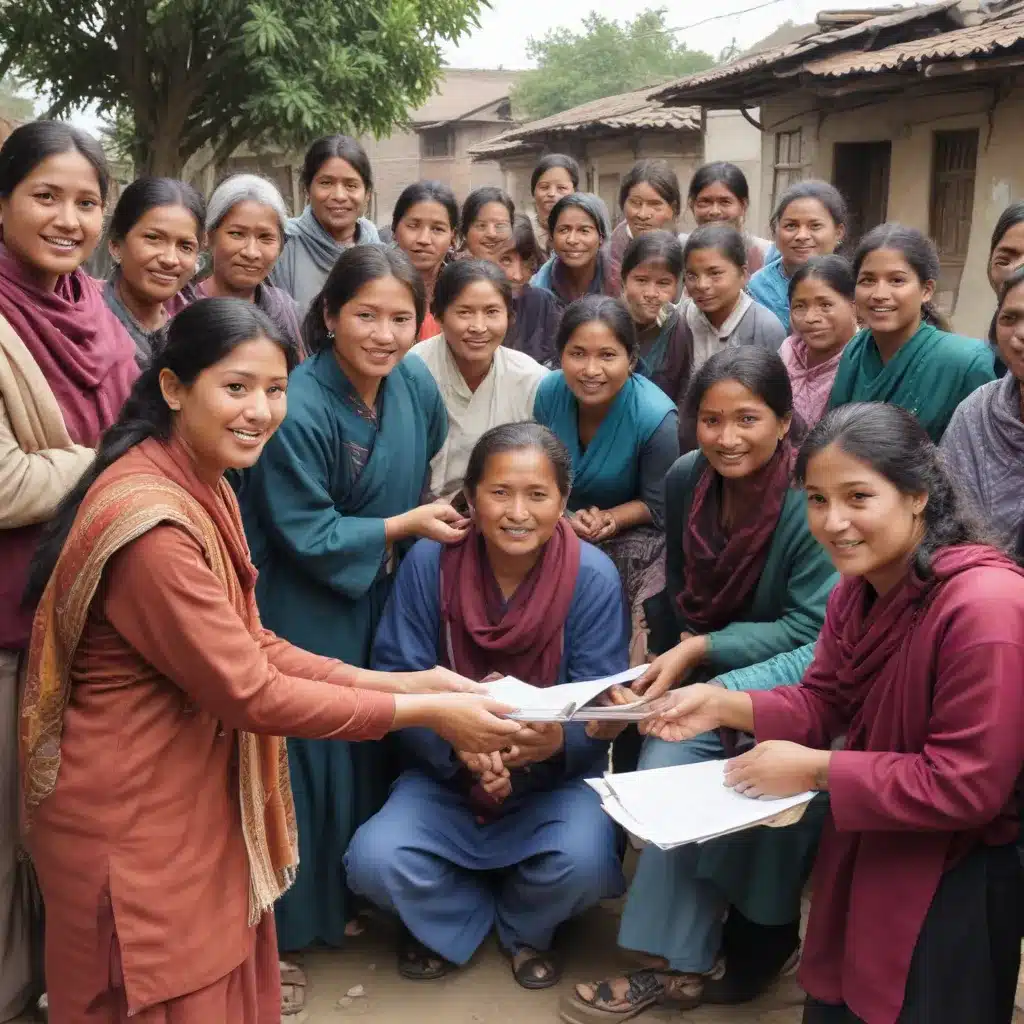
The Need for Innovative CHW Training Methods
One of the keys to improving health globally and achieving the Sustainable Development Goals (SDGs) is promoting the adoption of healthy home practices by mothers for improved nutrition and illness prevention in the critical first 1000 days of life from conception. However, traditional health education approaches, even when simplified, often struggle to create lasting behavior change, especially in low-resource settings where access to information is limited, educational levels are low, and deep-rooted cultural beliefs are strong.
The training and deployment of community health workers (CHWs) is globally recognized as a crucial strategy for bridging the gap between formal health services and communities. CHWs have shown promising impacts on immunization coverage, breastfeeding, TB treatment, and reducing child morbidity and mortality. Yet, more evidence is needed on the most effective training methodologies and materials to enhance CHWs’ knowledge-sharing capabilities and empower them as catalysts for sustainable behavior change.
Introducing the “Sharing Histories” Approach
To address this challenge, Future Generations has developed an innovative learning/teaching method called “Sharing Histories.” This integrated approach aims to build the self-confidence and empowerment of female CHWs, enabling them to become more effective change agents in their communities.
The Sharing Histories method has five key phases:
-
Guided History Sharing: Each CHW shares her own personal memories and experiences related to specific maternal, neonatal, and child health (MNCH) topics for each of her children.
-
Cultural Beliefs Analysis: The trainer leads a discussion to evaluate whether the cultural beliefs and practices mentioned in the histories are helpful, neutral, or harmful.
-
Linking Histories to Key Knowledge: CHWs learn and internalize correct MNCH information by relating it to the experiences shared in their histories.
-
Skills Practice: CHWs practice teaching mothers using the Sharing Histories method and flip charts under the supervision of trainers.
-
Home Visits: CHWs conduct monthly home visits to pregnant women and mothers with young children, sharing their own histories to build trust and using the flip charts to teach key health practices.
This approach differs from traditional health education in several ways. Rather than relying solely on heuristic information (simplified facts), the Sharing Histories method taps into the powerful role of narrative communication and autobiographical memory to facilitate learning and behavior change.
Theoretical Foundations of Sharing Histories
Psychological and communications research provides a strong theoretical foundation for the Sharing Histories approach. Autobiographical memory has been shown to serve three key functions: self-function (continuity of the self), social function (developing social bonds), and directive function (guiding future behaviors).
The directive function of autobiographical memories is particularly relevant, as the recall of emotionally-charged, low-closure memories (those representing unmet goals) can activate behavioral change opportunities. Additionally, research indicates that the sharing of personal stories, whether one’s own or those of others, can foster empathy, trust, and learning.
Neuroscience research further suggests that new learning integrates with existing memories, providing insights into how the Sharing Histories method may enhance knowledge retention and application.
Evaluating the Sharing Histories Approach
Future Generations has conducted several field tests of the Sharing Histories method, including a cluster-randomized controlled trial in 28 rural indigenous villages in the high Andes Mountains of Peru. This study compared the impact of the Sharing Histories approach on maternal knowledge, practices, and child growth outcomes against a control group using a more traditional CHW training method.
The results of this trial showed significant improvements in maternal knowledge and behaviors, as well as a reduction in stunting prevalence among children aged 0-23 months in the Sharing Histories intervention group compared to the control group. Qualitative data also highlighted how the method helped CHWs uncover and address deep-rooted cultural beliefs that had previously hindered behavior change.
These findings support the potential of the Sharing Histories approach to empower CHWs and catalyze sustainable improvements in maternal and child health outcomes, even in the most resource-constrained settings.
Scaling Up Effective CHW Training Approaches
As the global community continues to prioritize the scale-up of community-based primary healthcare solutions, it is essential to identify and promote CHW training methodologies that can truly transform these frontline workers into effective agents of change.
The Sharing Histories approach offers a simple, low-cost, and culturally-relevant training model that can be easily integrated into government health systems and ongoing CHW programs. By tapping into the power of personal narratives and autobiographical memory, this method has demonstrated the ability to build CHW confidence, uncover and address cultural barriers, and ultimately, drive sustainable improvements in maternal, neonatal, and child health.
Future research and implementation efforts should continue exploring the adaptability and scalability of the Sharing Histories approach in diverse cultural contexts, while also investigating its potential to address a wider range of community health and development priorities. By empowering CHWs through innovative training methods, we can accelerate progress towards the SDGs and ensure that no one is left behind.
Conclusion
The Sharing Histories approach represents a promising new frontier in the field of community health worker training and empowerment. By harnessing the power of personal narratives and autobiographical memory, this method equips CHWs with the confidence, cultural understanding, and practical skills needed to become effective catalysts for sustainable behavior change in their communities.
As the global community works to scale up community-based primary healthcare solutions, the Sharing Histories model offers a simple, low-cost, and culturally-relevant training approach that can be readily integrated into government health systems and ongoing CHW programs. Through continued research and implementation, this innovative method has the potential to transform CHWs into true agents of change, accelerating progress towards the Sustainable Development Goals and ensuring that every mother and child has access to the care and support they need to thrive.

